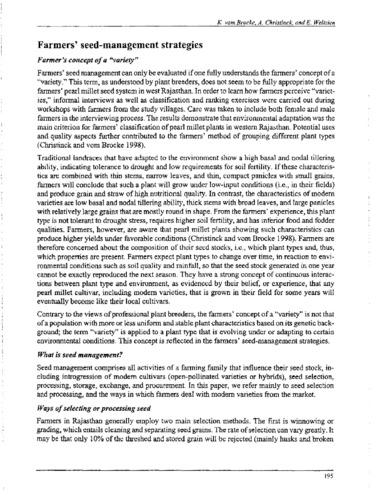The effect of climate, soil, and grazing management on the production and persistence of tropical pasture germplasm
The production of tropical pasture species is determined by a complex of interacting factors which include the climatic variables of temperature, rainfall, and solar radiation; the soil's capacity to supply nutrients; the soil water available to the roots; and the effects of both current and previous defoliation regimes. Factors which can magnify the complexity include toxicities resulting from low pH, high soluble Al and Mn concentrations, and excess soluble salts in the soil; and the presence of other competing species such as sown grasses, legumes, or weeds.
Large variation exists in the response of pasture germplasm to the variables discussed. This variation is the key to identifying and subsequently promoting pasture cultivars better adapted to the varied tropical environments where high inputs of fertilizers and other technological improvements are not used for economic reasons.
There is a great need to understand the response of tropical pasture species when grown in different environments and on different soils, and when subjected to competition with other species and to different defoliation strategies. It will then be possible for tropical pasture management to be based on a more secure foundation.

